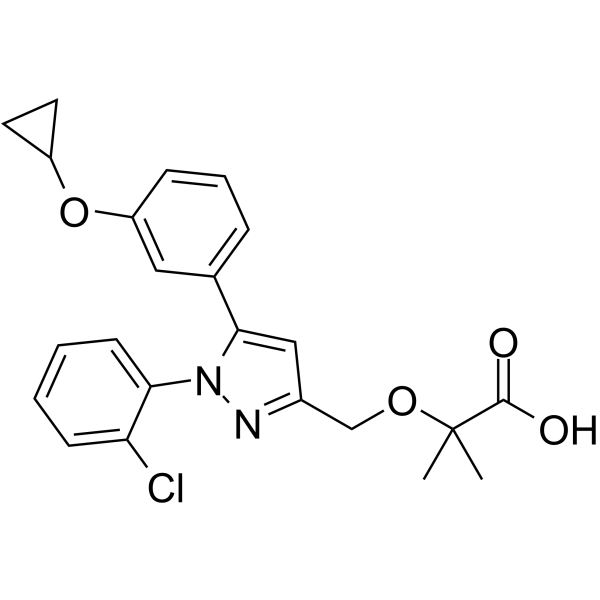Monocarboxylate Transporters
Monocarboxylate transporters (MCTs) constitute a family of proton-linked plasma membrane transporters that carry molecules having one carboxylate group (monocarboxylates), such aslactate and pyruvate, across biological membranes. Highly malignant tumors rely heavily on aerobic glycolysis (metabolism of glucose to lactic acid even under ample tissue oxygen; Warburg Effect) and thus need to efflux lactic acid via MCTs to the tumor micro-environment to maintain a robust glycolytic flux and to prevent the tumor from being "pickled to death". The MCTs have been successfully targeted in pre-clinical studies using RNAi and a small-molecule inhibitor alpha-cyano-4-hydroxycinnamic acid (ACCA; CHC) to show that inhibiting lactic acid efflux is a very effective therapeutic strategy against highly glycolytic malignant tumors.
Produkte für Monocarboxylate Transporters
- Bestell-Nr. Artikelname Informationen
-
GC13691
7ACC1
7ACC1 (DEAC; Cumarin D 1421; D 1421) interferiert selektiv mit LaktatflÜssen in der laktatreichen Tumormikroumgebung; hemmt den Laktateinstrom, aber nicht den Ausstrom in Tumorzellen, die MCT1- und MCT4-Transporter exprimieren.
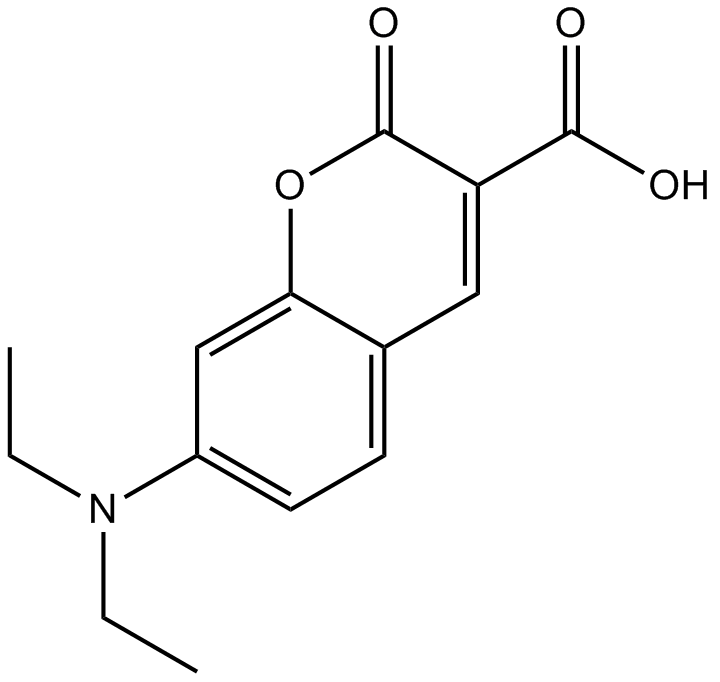
-
GC14642
7ACC2
7ACC2 ist ein potenter Monocarboxylat-Transporter (MCT)-Inhibitor mit einem IC50 von 11 nM zur Hemmung des [14C]-Lactat-Einstroms. 7ACC2 ist auch ein potenter Inhibitor des mitochondrialen Pyruvattransports. 7ACC2 ist ein Antikrebsmittel durch Hemmung des Laktatflusses.
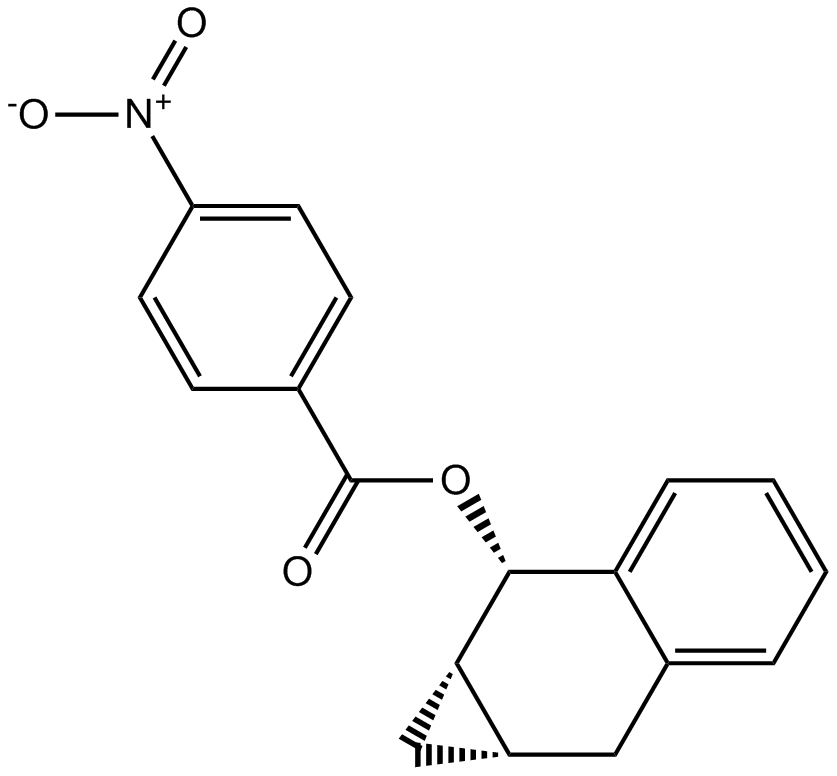
-
GC50226
AR-C 141990 hydrochloride
AR-C 141990 Hydrochlorid ist ein potenter Inhibitor von Laktattransportern (Monocarboxylattransportern; MCTs) mit pKi-Werten von 7,6, 6,6 für MCT-1 bzw. MCT-2.
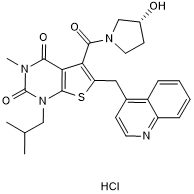
-
GC10680
AR-C155858
An inhibitor of MCT1 and 2
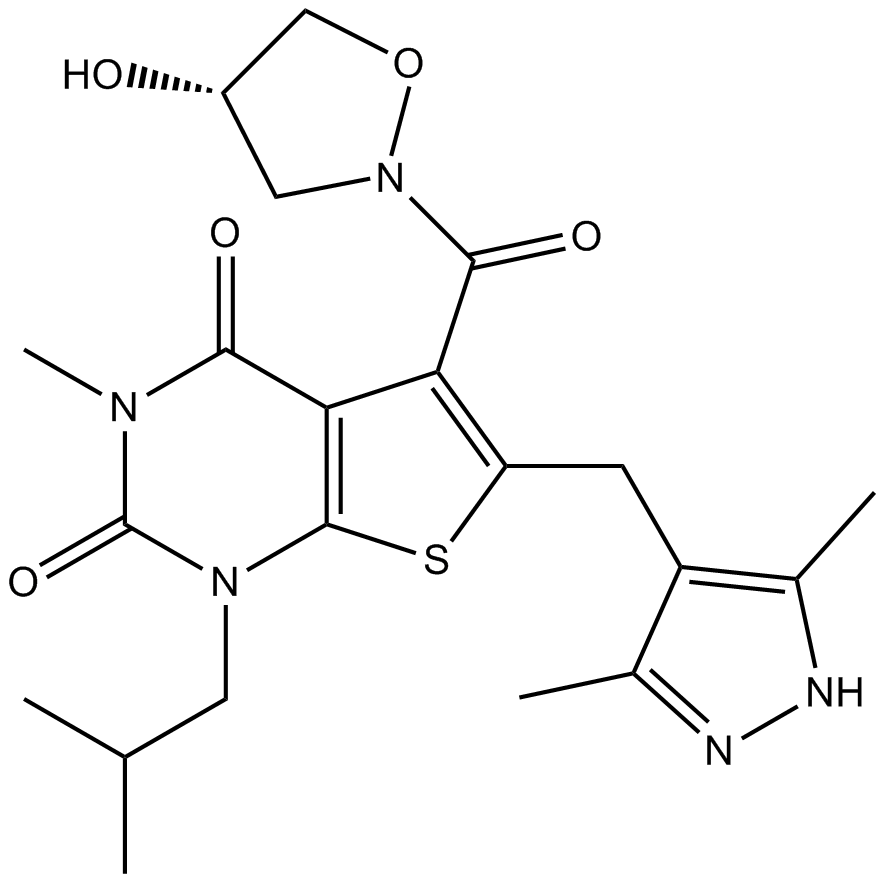
-
GC11010
AZD 3965
AZD 3965 ist ein selektiver MCT1-Inhibitor mit einem Ki von 1,6 nM und einer 6-fachen Selektivität gegenüber MCT2.
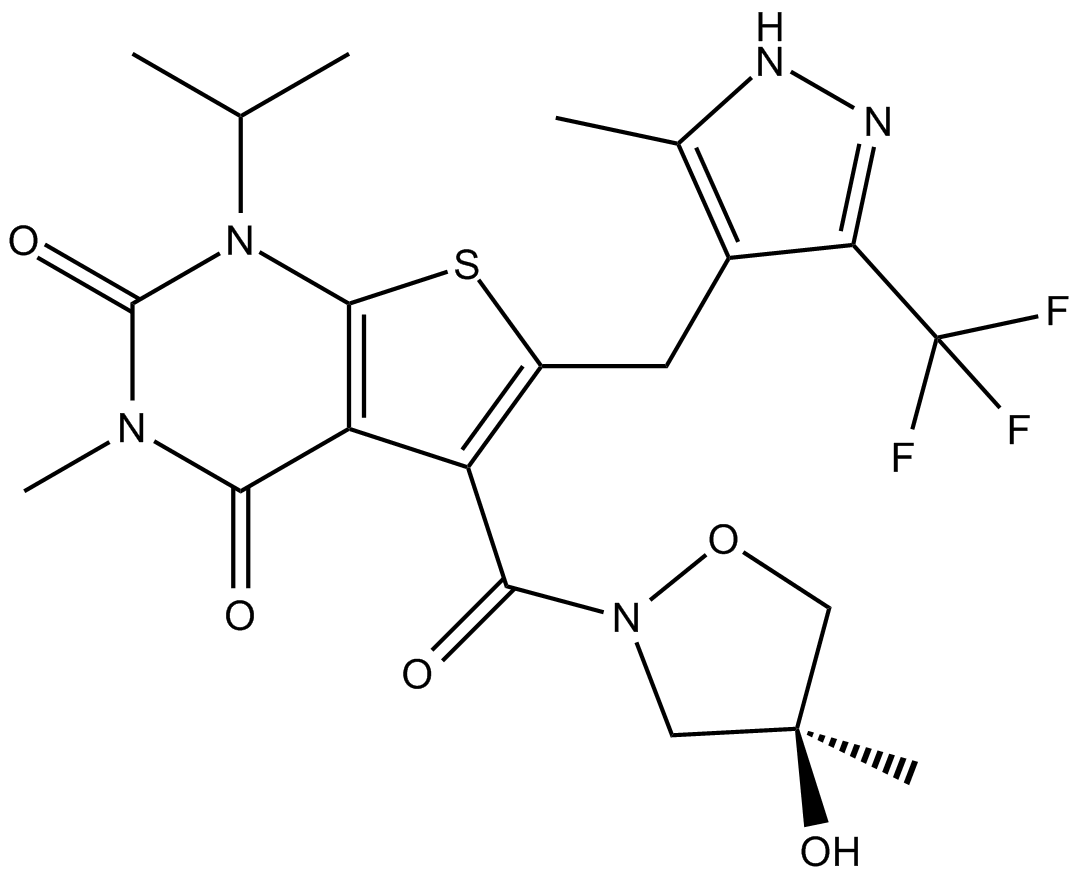
-
GC19488
BAY-8002
BAY-8002 ist ein potenter, selektiver, oral aktiver Inhibitor des Monocarboxylat-Transporters 1 (MCT1) mit einem IC50-Wert von 85 nM in den MCT1-exprimierenden DLD-1-Zellen und zeigt eine hervorragende Selektivität gegenüber MCT4. Anti-Tumor-Aktivität.

-
GC10877
CHC
CHC (α-Cyano-4-hydroxycinnamate) ist ein starker und nicht kompetitiver Inhibitor von Monocarboxylat-Transportern (MCTs).
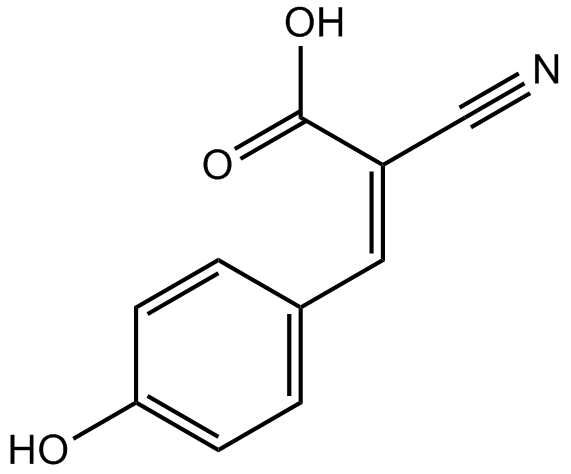
-
GC63062
MCT4-IN-1
MCT4-IN-1 ist ein oral aktiver und selektiver Monocarboxylattransporter 4 (MCT4/SLC16A3)-Inhibitor mit einem IC50 von 77 nM und einem Ki von 11 nM. MCT4-IN-1 zielt auf die zytosolische DomÄne von MCT4 ab. MCT4-IN-1 fÜhrt zu einer Hemmung des Laktatausflusses und einer Verringerung der zellulÄren LebensfÄhigkeit in MCT4-stark exprimierenden Zellen. MCT4-IN-1 hat das Potenzial fÜr die Erforschung der Hemmung des MCT4-Transporters.
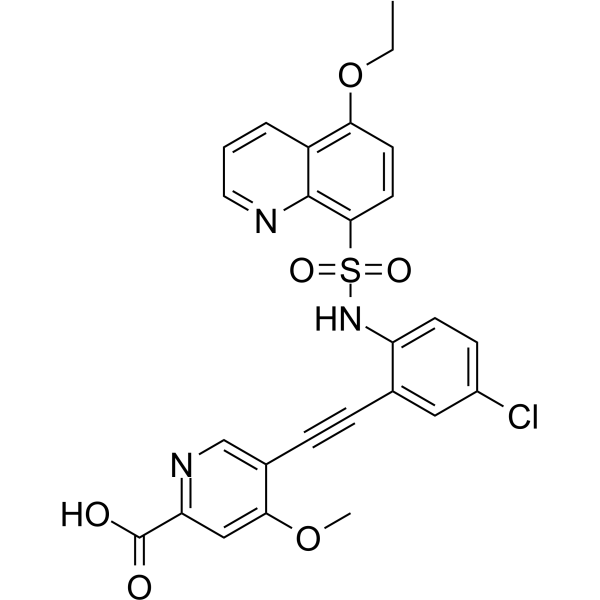
-
GC50163
SR 13800
SR 13800 ist ein potenter Monocarboxylat-Transporter 1 (MCT1)-Inhibitor. SR 13800 hat Anti-Krebs-AktivitÄt.
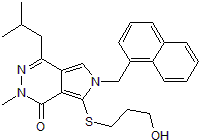
-
GC63496
VB124
VB124 ist ein oral aktiver, potenter und selektiver MCT4-Inhibitor.
